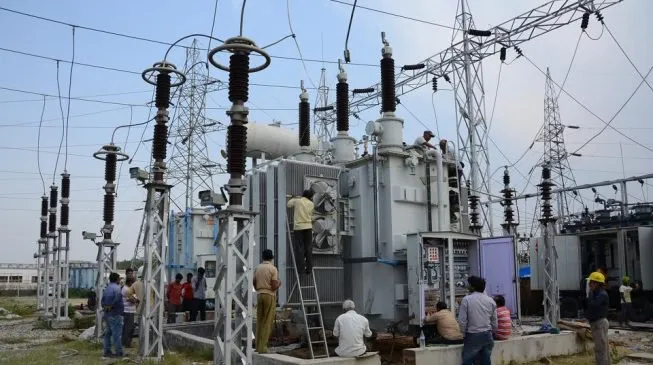A financial expert, Mr Wale Shonibare, has urged the Federal Government to prioritise power sector infrastructure development to drive the country’s industrial growth.
Shonibare, made the call in an interview with the News Agency of Nigeria, (NAN) on the sidelines of the African Investment Forum, Market Days 2024, which ended recently in Rabat, Morocco.
Shonibare, the Director of Energy Financial Solutions, Policy and Regulation Department, African Development Bank Group, said that achieving industrialisation requires affordable baseload power.
According to him, it is necessity for economic growth and development.
Shonibare cited China and Germany as examples, adding that producing cheap electricity leads to lower production costs and more competitive products.
Shonibare noted that Nigeria’s potential to become a manufacturing hub for West Africa and possibly all of Africa with adequate power infrastructure.
“If we can get that power issue right, then we can add value to our production. We don’t just sell raw materials,” he said.
Shonibare noted that to do an aluminium smelter, for example, 40 per cent of the cost would be power.
According to him, if Nigeria can get that right, the country will be producing aluminium and have an automotive market where it can make cars.
“So, all of these things are very linked,” he said.
He emphasised that the sustainability of utilities and a well-structured tariff system were essential for attracting investment in the sector.
“The sector has to make sense. The sector has to be liquid.
“It’s very important that we sort out things like the sustainability of our utilities; having the right tariff structures because the utilities buy the electricity.
“So, if the utilities are not sustainable, it’s very difficult to bring investment into the sector.
“I was very involved in the privatisation effort, mobilising investment when I was working in Nigeria about eight years ago.
“Look at what has happened to all those loans that were taken at that time. If we don’t demonstrate that Nigeria is a viable investment destination, that investment will go elsewhere. This is because capital is not sentimental,” he said.
According to him, in Nigeria, there is an emphasis on making sure that the country develop the infrastructure for evacuating the power.
He noted that Nigeria had a lot of stranded power that was not evacuated.
Shonibare emphasised the need to prioritise investments in transmission and distribution infrastructure to address Nigeria’s frequent grid collapses.
“We have the generation capacity, but power must reach the people, requiring robust transmission lines, distribution systems, substations, and effective collection,” he said, noting the Nigeria’s significant metering gap.
He cautioned against focusing solely on generation, as a fragile grid hinders the integration of renewable energy.
He added, “Politicians often favour ribbon-cutting ceremonies tied to generation projects, but the entire value chain requires attention.”
Shonibare also called for urgent action to stabilise the grid, highlighting that once a stable platform is established, other critical aspects of the power sector can be developed effectively.
“We’ve learned a lot of lessons, and I still believe that in the long run, the privatisation and liberalisation of the sector in Nigeria is creating a lot of innovative businesses and approaches.
“States are taking more of the role, and the states are closer to the people. I think that’s a very good innovation, because then, the governors will be held accountable for providing electricity.
“We didn’t have that before, because power generation was on the exclusive list.
“I’m seeing a lot of talent coming out of Nigeria, and we have to mobilise our local financial sector. Nobody else is going to do it for us. If the sector is bankable, the money will come in.
“We saw it in telecoms. It needs to happen for the power sector,” he said. (NAN)























